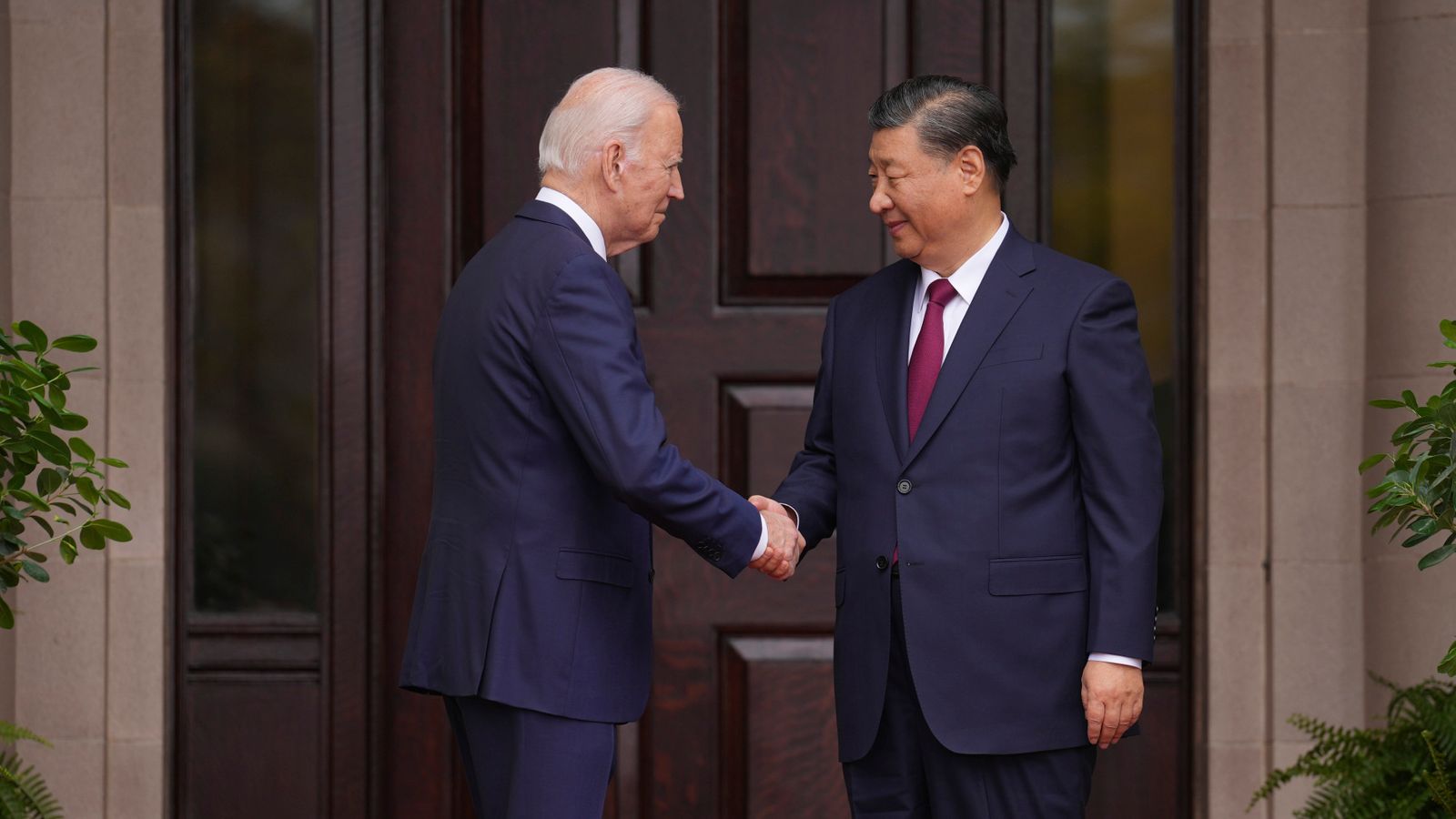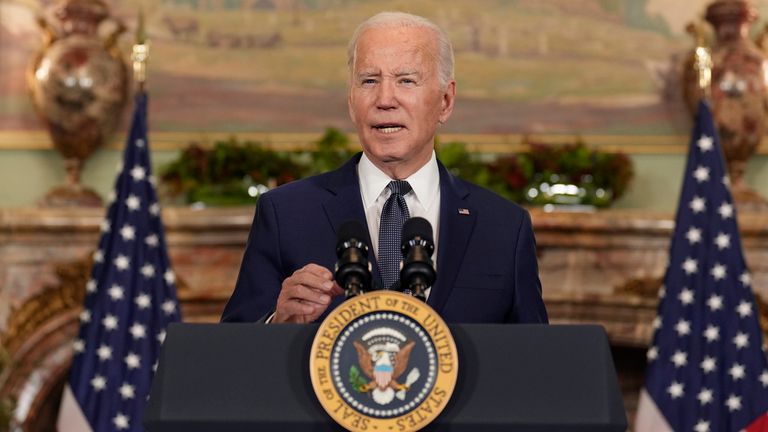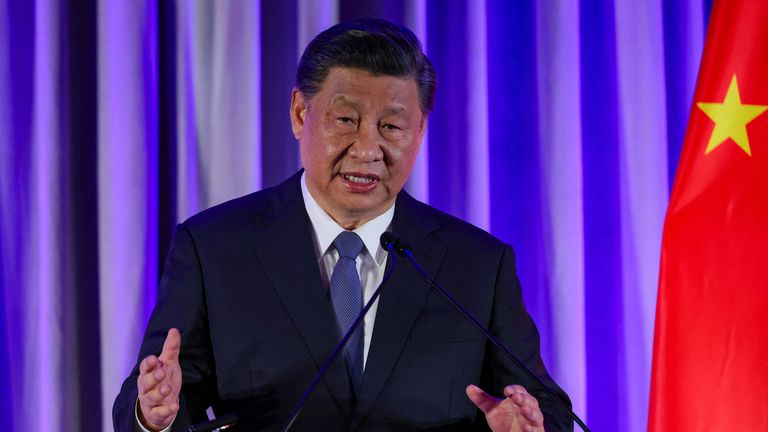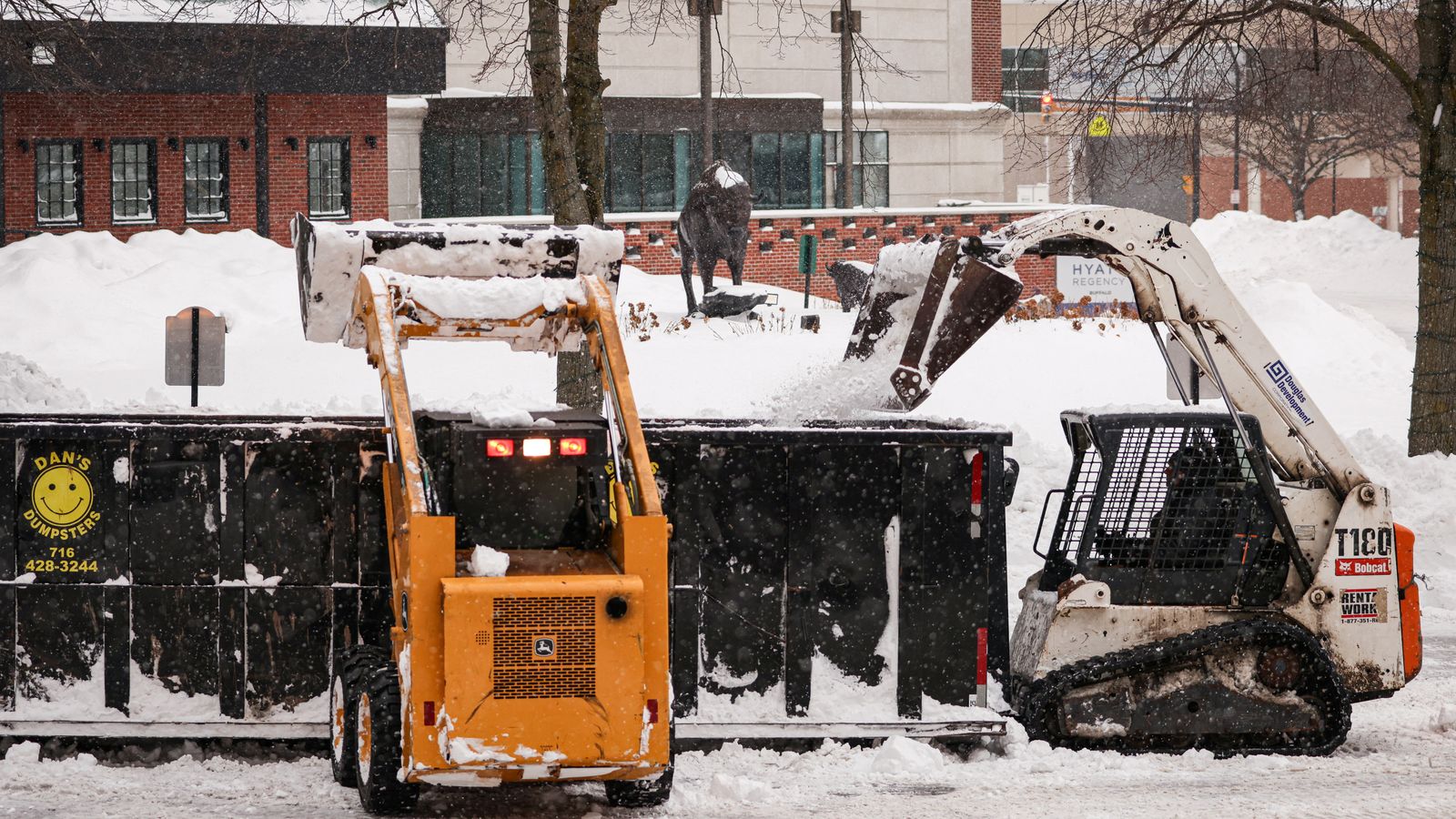Biden-Xi talks: Direct military communications between US and Chinese forces to be reopened


Direct lines of communication between American and Chinese military forces are to be reopened for the first time in more than a year, Joe Biden has announced.
Speaking after a meeting with China’s premier Xi Jinping in California, the US president said the restoration of military-to-military communications would help to prevent accidents which could spiral into wider conflicts.
Beijing formally suspended direct military contact with the US in April 2022 in the wake of then-House Speaker Nancy Pelosi’s visit to the island of Taiwan – which China views as a breakaway province.
The move to restart them was one of three agreements President Biden presented to the media following face-to-face conversations with President Xi on Wednesday – their first meeting in a year.
Mr Biden said the pair had agreed on a deal to curb the production of fentanyl – a drug which has led to a huge spike in deaths in US cities – and on the need to discuss the potential risks of artificial intelligence (AI).
He said they had also exchanged views on a number of world issues, including the Israel-Hamas conflict and Russia’s invasion of Ukraine, as well as American concerns about China’s ruling communist party – among them allegations of human rights abuses and Beijing’s expansion of maritime operations in the South China Sea.
However, he said he remained committed to the US’s long-standing “One China” policy – the bedrock of Washington-Beijing relations – in which the US maintains formal ties with China and only informal ones with Taiwan.
In his own speech, made to American executives in San Francisco, Mr Xi mirrored his counterpart’s amiable tone, saying China was ready to be a friend and partner to the US.
However, in a veiled threat, he warned Washington not to bet against China, and to stay clear of its internal affairs.
Advertisement

Mr Biden said both he and Mr Xi had agreed to open high-level communications.
“He and I agreed that each one of us can pick up the phone, call directly and we’ll be heard immediately,” he told
reporters after the meeting.
When asked by a reporter at the press conference about whether he “trusted” the Chinese president, Mr Biden replied: “Do I trust [him]?
“Trust but verify, as the saying goes.
“We are in a competitive relationship – China and the US – but my responsibility is to make this rational and manageable so it doesn’t result in conflict.”
The Filoli House and Garden on the edge of California’s Silicon Valley is normally a luxury venue for weddings. But on Wednesday it was an attempt to avoid a full-blown divorce between two world powers taking centre stage.
President Biden waited at the pillared entrance to greet his guest, flanked on one side by the Stars and Stripes and on the other, the Five-star Red Flag. President Xi pulled up in a black bulletproof sedan. There was the hint of a smile from President Biden and a handshake for the man he calls a dictator.
The White House had been keeping expectations for the meeting limited, stating that this summit was about reopening channels of communication and preventing the relationship spiralling into conflict.
“I think it’s paramount that you and I understand each other clearly, leader to leader,” President Biden said across the boardroom table. “We have to ensure that competition does not veer into conflict.” President Xi suggested he, too, wanted stability. “This planet is big enough for the two countries to succeed,” he said.
Over the course of four hours – including a break for a lunch of herbed ricotta ravioli and artichoke chips – the leaders thrashed out a whole host of issues.
On many subjects there is little consensus – from wars in Ukraine and Gaza, to artificial intelligence.
There were some agreements made, on military-to-military communications and efforts to curb the production of fentanyl, the drug which kills more 18-49 year olds in American than anything else.
After talks had concluded, Presidents Biden and Xi walked around the grand grounds of Filoli House, step in step. The pair discussed their respective wives and what it is like to live in the vice president’s residence (Biden) and Shanghai (Xi).
There was even a thumbs up to photographers from President Biden and a promise that the leaders would keep talking over the phone. But with so many major issues unresolved, and tension still apparent, there is a sense that this uneasy union is one misstep from tumbling into disaster.
Read more:
Biden and Xi’s rendezvous is more important than ever
China returns to deflation as economy faces many challenges
US warns China after collision with ships from Philippines
The US president had earlier welcomed the Chinese leader at the Filoli estate, a country house and gardens about 30 miles (48 km) south of San Francisco, ahead of a summit of the Asia-Pacific Economic Cooperation (APEC) forum.
The meeting came amid increasingly strained tensions between the two global powers.
Mr Biden had earlier billed the meeting as a chance for Washington and Beijing to get back “on a normal course” again, and that the two countries had to make sure that the rivalry between them did “not veer into conflict”.
Since they last met in November 2022, fraught relations have been further strained by the US downing of a Chinese ‘spy’ balloon that flew over America and by differences on the self-ruled island of Taiwan, as well as China’s hacking of a Biden official’s emails.
Mr Xi said a lot had happened since their last meeting, telling the media: “The world has emerged from the COVID pandemic, but is still under its tremendous impacts. The global economy is recovering, but its momentum remains sluggish.”
He said prior to the meeting that he wanted assurances from Mr Biden that the US would not support Taiwan independence, start a new Cold War, or suppress China’s economic growth.
Mr Xi said he was also keen to show America that China is still a good place to invest.
After the meeting, Mr Biden wrote on X, formerly Twitter: “I value the conversation I had today with President Xi because I think it’s paramount that we understand each other clearly, leader to leader.
“There are critical global challenges that demand our joint leadership. And today, we made real progress.”
The White House later said in a readout of their conversation that the talks had been “candid and constructive” and that they had “made progress on a number of key issues”.
“The two leaders welcomed the resumption of high-level military-to-military communication, as well as the US-China Defence Policy Coordination Talks and the US-China Military Maritime Consultative Agreement meetings,” the White House said.
“Both sides are also resuming telephone conversations between theatre commanders.”

